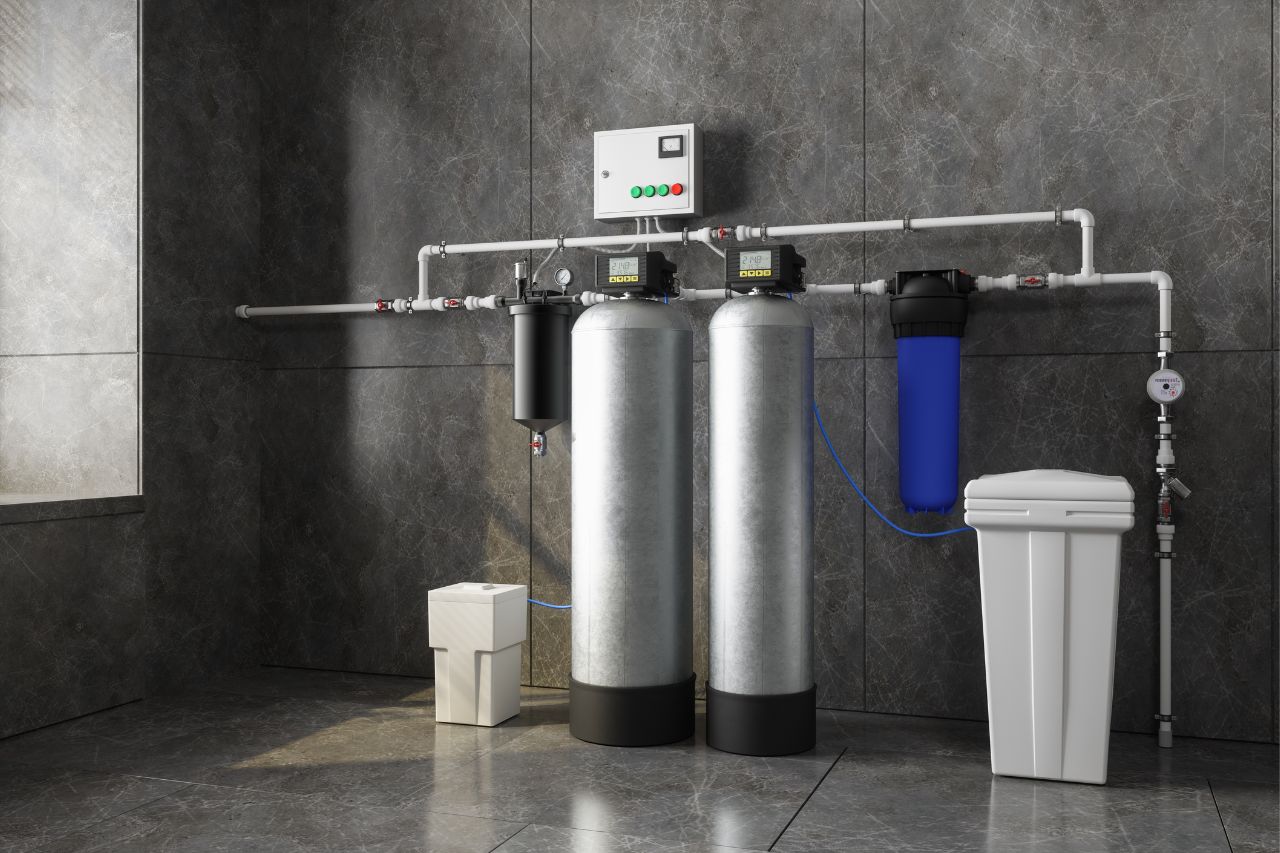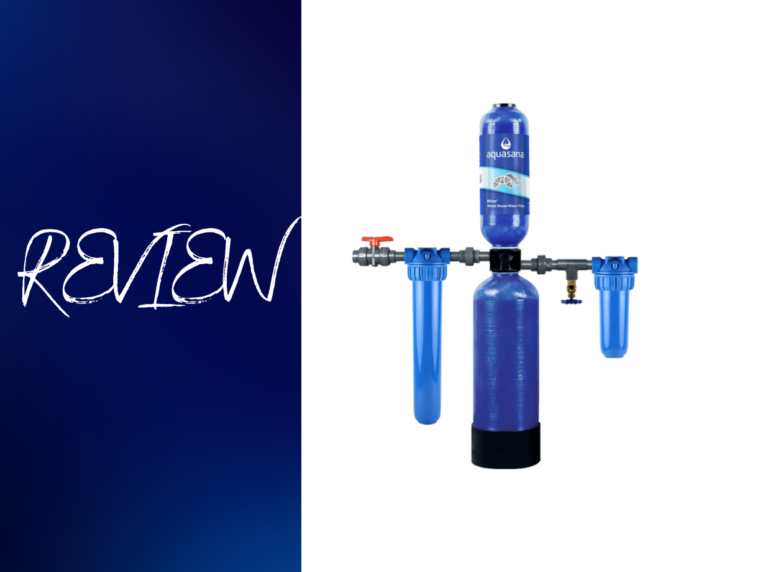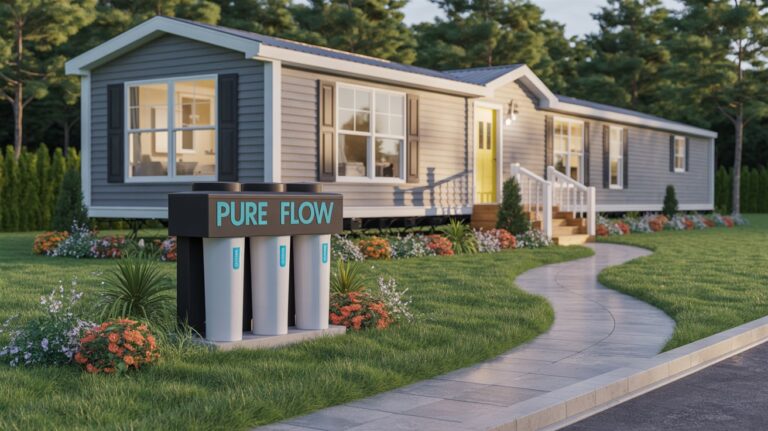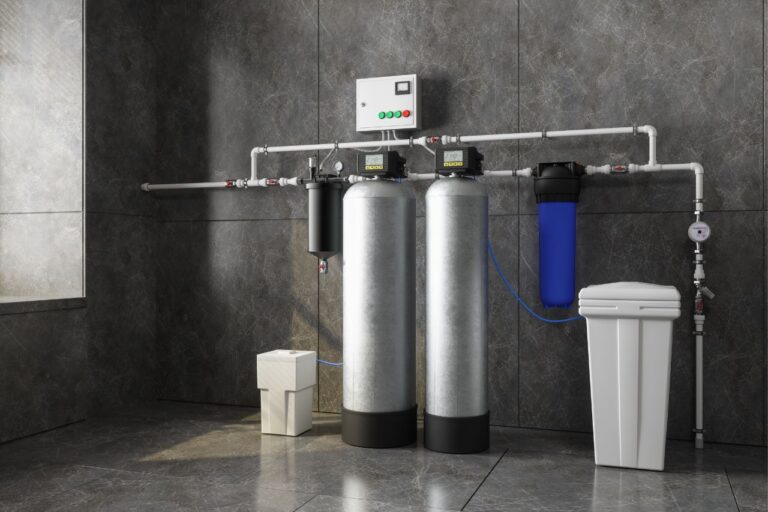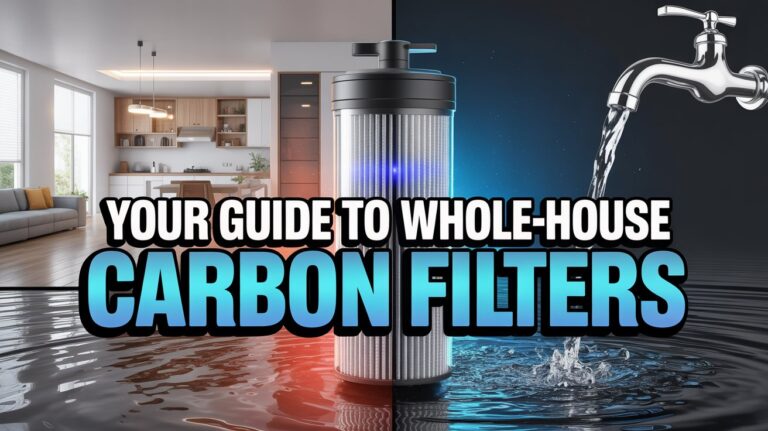Whole House Water Filtration Systems
In this article, you will learn about whole house water filtration systems and their importance in ensuring clean and safe water throughout your home. We will discuss how these systems work, their benefits, and the different types available. By the end of this article, you will have a better understanding of why investing in a whole house water filtration system is a wise decision for the health and well-being of you and your family. Let’s get started.
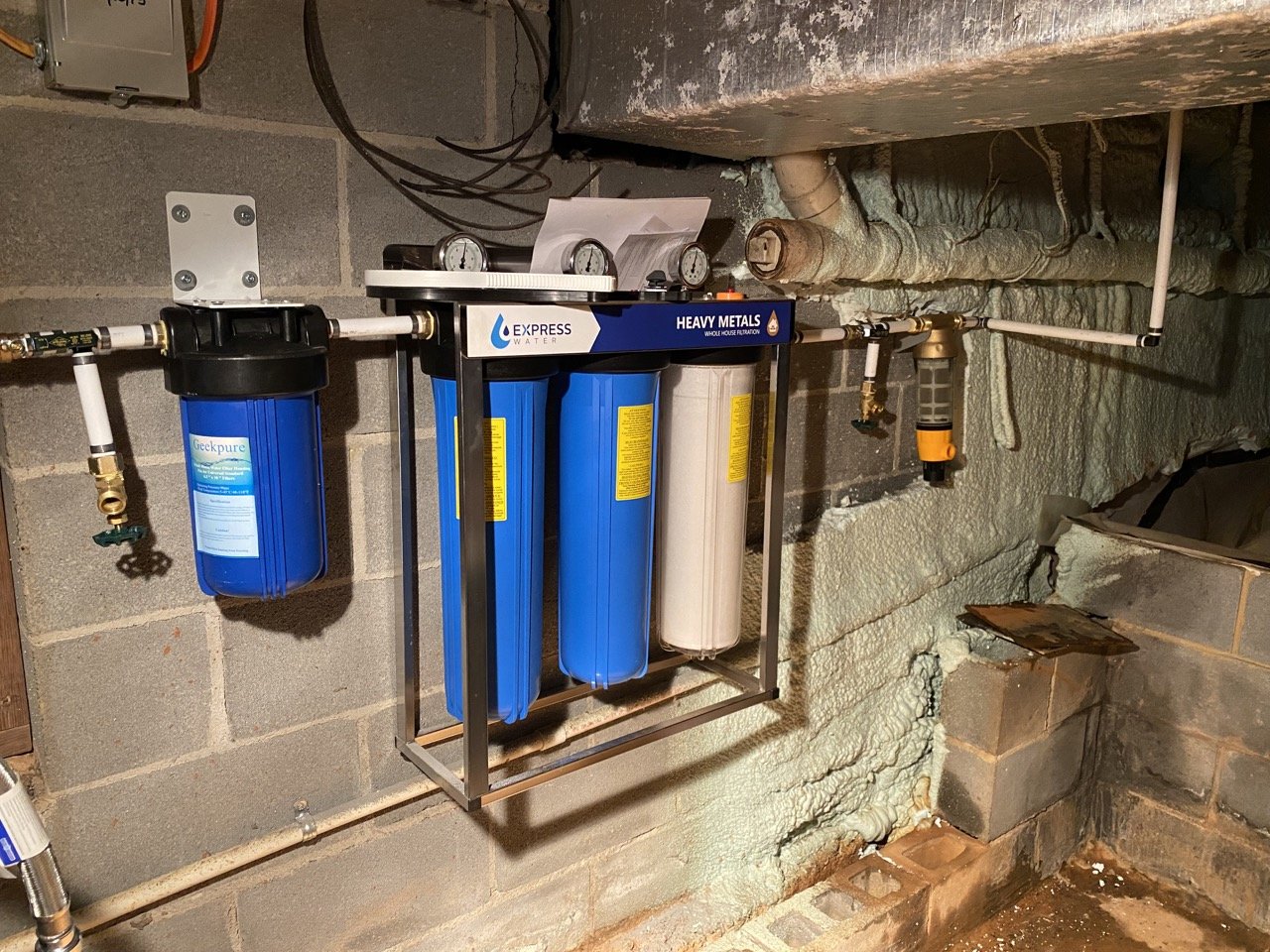
Overview of Whole House Water Filtration Systems
Water is a basic necessity of life, and having access to clean and safe water is essential for maintaining a healthy and hygienic lifestyle. With the increasing concerns about the quality of tap water, many homeowners are turning to whole house water filtration systems as a solution. These filtration systems are designed to remove impurities and contaminants from the water supply, ensuring that every tap in your home delivers clean and safe water.
Benefits of using whole house water filtration systems
Using a whole house water filtration system offers numerous benefits for both you and your household. Firstly, it provides you with a consistent and convenient access to clean water throughout your home. With a whole house system in place, every faucet, shower, and appliance that uses water will be supplied with filtered water. This means that you can enjoy clean and safe water for drinking, cooking, bathing, and even doing laundry.
Another benefit is the improved taste and odor of tap water. Many tap water sources can have a noticeable chlorine taste or a foul odor, which can be off-putting. Whole house water filtration systems effectively remove these unpleasant elements, enhancing the overall quality of your tap water.
In addition to taste and odor, these filtration systems also reduce the presence of harmful contaminants in the water. Tap water can contain a variety of pollutants, such as bacteria, viruses, heavy metals, pesticides, and chemicals. By utilizing different filtration technologies, whole house water filtration systems can effectively remove these contaminants, providing you with water that is safe for consumption and other daily activities.
Furthermore, whole house water filtration systems help protect your appliances and plumbing systems. Contaminants present in tap water can cause mineral buildup and corrosion in appliances and plumbing fixtures, leading to reduced efficiency and potential damage. By removing these contaminants, whole house filtration systems can prolong the lifespan of your appliances and plumbing, saving you money in the long run.
Common contaminants in tap water
Before diving into the different types of whole house water filtration systems, it is important to understand the common contaminants found in tap water. While the specific contaminants can vary depending on your location and water source, some of the most common ones include:
- Chlorine: A disinfectant used in the water treatment process that can give water an unpleasant taste and odor.
- Sediments: Small particles of sand, dirt, rust, and other debris that can cause clogging and affect water clarity.
- Heavy metals: Lead, mercury, arsenic, and other metals can leach into the water supply from pipes and other sources, posing health risks.
- Bacteria and viruses: Microorganisms that can cause illnesses if ingested.
- Pesticides and herbicides: Chemicals used in agriculture that can contaminate water sources and potentially harm human health.
- Pharmaceuticals: Traces of prescription drugs that can enter the water system through improper disposal and pose risks to human health.
These are just a few examples of the contaminants that a whole house water filtration system can effectively remove, ensuring the water you consume and use is free from harmful substances.
The importance of clean and safe water for daily activities
Clean and safe water is essential for a wide range of daily activities, including drinking, cooking, bathing, and cleaning. Drinking contaminated water can lead to various health issues, ranging from gastrointestinal problems to more severe illnesses. Cooking with impure water can affect the taste and quality of food, while using contaminated water for bathing can irritate the skin and hair.
Furthermore, water quality can also impact the cleanliness of your home. Hard water, for example, can leave mineral deposits on surfaces, making it more difficult to clean. By ensuring that every drop of water in your home is filtered and free from contaminants, you can enhance your overall well-being and maintain a cleaner household.
Types of Whole House Water Filtration Systems
There are several different types of whole house water filtration systems available in the market. Each type utilizes different technologies to effectively remove specific contaminants from the water supply. Here are some of the most commonly used whole house water filtration systems:
Activated carbon filters
Activated carbon filters work by trapping and absorbing contaminants as water passes through a porous carbon block or granular activated carbon. These filters are effective at removing chlorine, volatile organic compounds (VOCs), and some heavy metals. However, they may not be as effective in removing certain inorganic contaminants or microorganisms.
Reverse osmosis systems
Reverse osmosis (RO) systems use a semipermeable membrane to remove a wide range of contaminants, including dissolved solids, microorganisms, and heavy metals. These systems are highly effective but can be more expensive and may require additional pre- and post-filtration stages.
UV (ultraviolet) sterilization systems
UV sterilization systems use ultraviolet light to kill or deactivate bacteria, viruses, and other microorganisms in the water. They are often used in conjunction with other filtration methods to provide an extra layer of disinfection.
Water softeners
Water softeners are specifically designed to remove hardness-causing minerals, such as calcium and magnesium, from the water. These systems use ion exchange resins to replace these minerals with sodium or potassium ions. Water softeners do not remove contaminants other than hardness-causing minerals.
Multi-stage filtration systems
Multi-stage filtration systems combine different filtration methods to provide comprehensive purification. These systems typically consist of multiple filters, each designed to target specific contaminants. They offer a higher level of filtration efficiency but can be more expensive and require regular filter replacements.
The choice of the filtration system depends on factors such as the specific contaminants in your water, your budget, and your water usage needs. Consulting with a water filtration specialist or conducting a professional water test can help determine the most suitable system for your home.

How Whole House Water Filtration Systems Work
Whole house water filtration systems typically consist of three main stages: pre-filtration, main filtration, and post-filtration. Each stage is designed to remove different types of contaminants and ensure the highest level of water purification.
Pre-filtration stage
The pre-filtration stage is responsible for removing larger particles, sediment, and debris from the water. This initial filtration process helps protect and extend the lifespan of the main filtration components. Common pre-filters include sediment filters and sediment cartridges, which trap particles as small as 5 microns.
Main filtration stage
The main filtration stage is where the majority of the impurities and contaminants are removed from the water. This stage typically utilizes advanced filtration technologies such as activated carbon, reverse osmosis membranes, or combination filters. These technologies effectively remove chlorine, VOCs, heavy metals, bacteria, viruses, and other contaminants, ensuring that the water is safe and clean.
Post-filtration stage
The post-filtration stage provides an additional layer of filtration and further enhances the quality of the water. This stage may include additional activated carbon filters, UV sterilization, or other purification methods. The goal is to remove any remaining impurities and ensure that the water is free from microorganisms and other potential contaminants before it reaches the taps in your home.
It is important to note that the specific configuration and components of each whole house water filtration system may vary. Some systems may include additional stages or incorporate different technologies to target specific contaminants. Understanding the filtration process of the system you choose will help you maintain and maximize its performance.
Installation Process
Installing a whole house water filtration system requires careful consideration and planning to ensure optimal performance and functionality. Here are the key steps involved in the installation process:
Assessment of water quality
Before installing a whole house water filtration system, it is important to assess the quality of your water. This can be done through professional water testing or by reviewing existing water quality reports provided by your municipality or water utility. Understanding the specific contaminants present in your water will help determine the most suitable filtration system for your needs.
Determining the appropriate system size
The size of the system you choose depends on factors such as your household size, water usage patterns, and flow rate requirements. A system that is too small may not be able to adequately filter the water, while a system that is too large may unnecessarily increase costs. Consulting with a water filtration specialist can help ensure that you select the appropriate system size for your home.
Professional installation vs. DIY installation
While it is possible to install a whole house water filtration system yourself, professional installation is generally recommended. Professional installers have the expertise and experience to ensure that the system is properly installed and integrated into your plumbing system. They can also provide guidance on the ideal location for the system and any necessary adjustments or modifications.
Required maintenance
Regular maintenance is essential to keep your whole house water filtration system running efficiently. This typically includes regular filter replacements, cleaning and sanitizing the system, and periodic inspections by a qualified technician. The frequency of maintenance tasks may vary depending on the specific system and water quality conditions. Following the manufacturer’s guidelines and scheduling regular maintenance will help ensure the longevity and performance of your system.
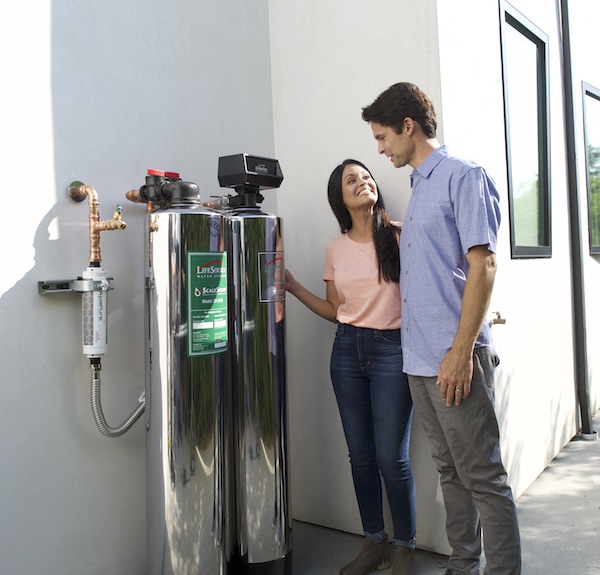
Factors to Consider When Choosing a Whole House Water Filtration System
When selecting a whole house water filtration system, several factors should be considered to ensure that it meets your specific needs and requirements. Here are some key factors to consider:
Water quality and contaminants
Consider the specific contaminants present in your water and choose a filtration system that is capable of effectively removing those contaminants. Some systems may be more effective at removing certain types of contaminants than others. Understanding your water quality will help you select the most appropriate system for your household.
Flow rate and water pressure
Consider the flow rate and water pressure requirements of your household. Some filtration systems may have restrictions on flow rate and can impact the overall water pressure in your home. Ensure that the system you choose can accommodate your water usage needs without compromising the performance of your plumbing fixtures.
System capacity
The capacity of the filtration system refers to the volume of water it can effectively filter within a given time frame. This is particularly important for larger households or homes with high water usage. Choosing a system with adequate capacity will ensure that you have a consistent supply of clean and filtered water throughout the day.
Certifications and standards
Look for filtration systems that have been certified by reputable organizations, such as the NSF International or the Water Quality Association (WQA). These certifications indicate that the system has been independently tested and meets specific performance standards. Choosing a certified system provides assurance of its effectiveness and reliability in removing contaminants.
Budget considerations
Whole house water filtration systems come in a range of prices, and it is important to consider your budget when selecting a system. While more advanced systems may offer superior filtration capabilities, they may also come with a higher upfront cost. Consider the long-term benefits and potential savings when making your decision.
Advantages of Whole House Water Filtration Systems
Using a whole house water filtration system offers numerous advantages for homeowners. Here are some of the key benefits:
Consistent and convenient access to clean water throughout the house
One of the main advantages of whole house water filtration systems is that they provide a consistent supply of clean and safe water to every tap in your home. This means that you can enjoy clean drinking water, cook with purified water, and bathe in water that is free from harmful contaminants. The convenience of having filtered water readily available throughout your house is a major benefit for many households.
Improved taste and odor of tap water
Whole house water filtration systems effectively remove chlorine, sediments, and other impurities that can affect the taste and odor of tap water. By eliminating these elements, the water in your home will have a fresher and more appealing taste, making it more enjoyable to drink and use for cooking.
Reduction of harmful contaminants in water
Whole house water filtration systems are designed to remove a wide range of contaminants that can be present in tap water. This includes bacteria, viruses, heavy metals, pesticides, and other harmful substances. By using a whole house filtration system, you can minimize your exposure to these contaminants, ensuring that the water you consume and use for daily activities is clean and safe.
Protection for appliances and plumbing systems
Contaminants present in tap water can cause mineral buildup and corrosion in appliances and plumbing fixtures. This can lead to reduced efficiency, increased maintenance costs, and premature failure of these systems. By removing these contaminants, whole house water filtration systems help protect and prolong the lifespan of your appliances and plumbing, saving you money in the long run.

Disadvantages of Whole House Water Filtration Systems
While whole house water filtration systems offer numerous benefits, they also have some potential disadvantages to consider. Here are a few:
Initial upfront cost
The cost of purchasing and installing a whole house water filtration system can be higher compared to other types of water filtration options. The exact cost will depend on factors such as the system type, size, and any additional components or features. However, it is important to consider the long-term benefits and potential savings in terms of appliance lifespan and reduced health risks when evaluating the overall value of the system.
Occasional filter replacements and maintenance
Whole house water filtration systems require regular filter replacements and maintenance to ensure optimal performance. Depending on the specific system and water quality conditions, filters may need to be replaced every few months or annually. While this is a necessary upkeep cost, it is important to factor in the ongoing maintenance requirements when considering the overall cost of the system.
Potential reduction in water pressure
Some whole house water filtration systems may have a noticeable impact on water pressure. This can be due to the filtration process and the additional resistance created by the filtration components. While the reduction in water pressure may not be significant, it is important to consider this potential trade-off and ensure that the system you choose does not significantly impact your household’s water usage needs.
Complex installation process
Installing a whole house water filtration system can be more complex compared to other types of water filtration options. It typically involves integrating the system into the main water supply line and may require professional installation to ensure proper functionality and efficiency. While professional installation may add to the upfront cost, it helps ensure that the system is installed correctly and integrated into your plumbing system for optimal performance.
Maintenance and Service Requirements
Proper maintenance and servicing are crucial in ensuring the continued effectiveness and efficiency of your whole house water filtration system. Here are some key maintenance requirements to keep in mind:
Regular filter replacements
Filters are a critical component of any whole house water filtration system and require regular replacements. The frequency of filter replacements will depend on the system type, the specific filters used, and the water quality conditions. Some filters may need replacing every few months, while others may last up to a year. Regularly replacing the filters will help ensure that the system continues to remove contaminants effectively.
Cleaning and sanitizing the system
Regular cleaning and sanitizing of the system are necessary to prevent bacteria and mold growth and maintain optimal performance. The specific cleaning requirements will depend on the system type and design. Consult the manufacturer’s guidelines or seek professional advice on the recommended cleaning procedures for your system.
Professional servicing and inspections
Periodic professional servicing and inspections are recommended to ensure that the whole house water filtration system is performing optimally. A qualified technician can inspect the system, identify any potential issues or necessary repairs, and ensure that all components are functioning correctly. Professional servicing can help prolong the lifespan of the system and prevent any major problems from occurring.

Comparisons with Other Water Filtration Options
When considering water filtration options for your home, it is important to weigh the advantages and disadvantages of different systems. Here are some comparisons between whole house water filtration systems and other common filtration options:
Whole house water filtration vs. point-of-use filtration
Point-of-use filtration systems, such as faucet-mounted filters or under-sink filters, are designed to filter water at specific taps. While these systems are relatively affordable and easy to install, they only provide filtered water at individual points. Whole house water filtration systems, on the other hand, deliver filtered water to every tap in your home, providing a more comprehensive solution for ensuring clean water throughout your household.
Whole house water filtration vs. pitcher filters
Pitcher filters are a convenient and affordable option for individual water filtration. They can effectively remove some contaminants but have limited capacity and require regular refilling. Whole house water filtration systems, on the other hand, provide a continuous supply of filtered water throughout your home without the need for manual refilling. Additionally, pitcher filters may not be as effective at removing certain contaminants compared to whole house systems.
Whole house water filtration vs. refrigerator filters
Refrigerator filters are typically designed to remove chlorine and some sediments or impurities from the water dispenser or ice maker in your refrigerator. While they can improve the taste and odor of water, refrigerator filters are often limited in their filtration capabilities and may not remove all types of contaminants. Whole house water filtration systems provide comprehensive filtration for the entire household, ensuring that every tap delivers clean and safe water.
It is important to consider your specific needs, budget, and water quality requirements when choosing between different water filtration options. Consulting with a water filtration specialist can help you determine the most suitable system for your household.
Conclusion
Ensuring that your home has access to clean and safe water is crucial for maintaining a healthy and hygienic lifestyle. Whole house water filtration systems provide a comprehensive solution for removing impurities and contaminants, delivering clean water to every tap in your home.
By utilizing different filtration technologies such as activated carbon, reverse osmosis, UV sterilization, and more, these systems effectively remove chlorine, sediments, heavy metals, bacteria, viruses, and other harmful substances. This results in improved taste and odor of tap water, enhanced water quality for everyday activities, and protection for your appliances and plumbing systems.
While there are some disadvantages, such as the initial upfront cost and periodic maintenance requirements, the numerous benefits of whole house water filtration systems outweigh the drawbacks. By investing in a whole house water filtration system, you can have peace of mind knowing that you and your family have consistent access to clean and safe water throughout your home.
When choosing a whole house water filtration system, consider factors such as water quality, flow rate, system capacity, certifications, and budget. It is also important to follow proper installation procedures and schedule regular maintenance to ensure the longevity and performance of your system.
Commit to clean and safe water for you and your family by investing in a whole house water filtration system. Choose the right system for your needs and enjoy the benefits of clean and healthy water in every aspect of your daily life.

